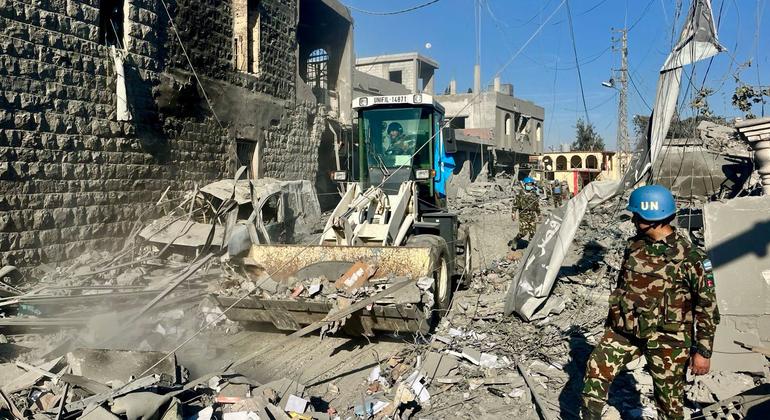Amid the chaos and devastation in Gaza and Lebanon, there is a glimmer of hope as UN agencies report some positive developments in the region. The situation in both countries has been dire, with a rising death toll and widespread destruction. However, efforts to provide aid and support to the affected populations are beginning to show some progress.
One piece of good news is that the final phase of a polio vaccine campaign in Gaza has reached nearly 90 per cent of children in the northern region. This is a significant achievement in the midst of the ongoing crisis, as it will help prevent the spread of this debilitating disease among the most vulnerable members of the population. The success of this campaign is a testament to the hard work and dedication of healthcare workers on the ground, as well as the support of UN agencies and other aid organizations.
In addition to the vaccination campaign, efforts are also being made to ensure that Palestinian and Lebanese children have access to education. Many schools in the region have been damaged or destroyed in the conflict, leaving thousands of children without access to learning opportunities. In response to this crisis, makeshift classrooms are being set up to provide a safe and supportive environment for children to continue their education. This is crucial in helping young people in Gaza and Lebanon rebuild their lives and secure a better future for themselves.
As the situation in Gaza and Lebanon continues to deteriorate, the international community is mobilizing to provide assistance and support to those in need. The United Nations Relief and Works Agency for Palestine Refugees (UNRWA) is playing a key role in this effort, providing vital services and aid to Palestinian refugees in the region. However, new Israeli laws threaten to ban UNRWA within the next 90 days, which could have serious implications for the millions of refugees who rely on the agency for support.
The General Assembly is set to meet to discuss the future of UNRWA and the impact of the proposed ban on its operations. This meeting will be a crucial opportunity for member states to come together and find a solution to ensure that essential services continue to be provided to Palestinian refugees in Gaza and Lebanon. The international community must work together to address the humanitarian crisis in the region and support those who have been affected by the ongoing conflict.
As the situation in Gaza and Lebanon remains uncertain, it is essential that humanitarian aid continues to flow into the region to support those in need. The UN and other aid organizations are working tirelessly to provide assistance to the affected populations and ensure that basic needs are met. However, the challenges are immense, and more support is needed to address the growing humanitarian crisis in Gaza and Lebanon.
In the midst of the darkness and despair, there are signs of hope and resilience in Gaza and Lebanon. The success of the polio vaccine campaign and the efforts to provide education to children are testaments to the strength and determination of the people in the region. With continued support and solidarity from the international community, there is hope that Gaza and Lebanon can rebuild and recover from the devastating impact of the conflict.
As we await further updates on the situation in Gaza and Lebanon, we must continue to stand in solidarity with the people of the region and support efforts to provide aid and assistance to those in need. The road to recovery will be long and challenging, but with perseverance and determination, there is hope for a brighter future for Gaza and Lebanon. Join us in supporting the relief efforts in the region and standing with the people of Gaza and Lebanon in their time of need.









